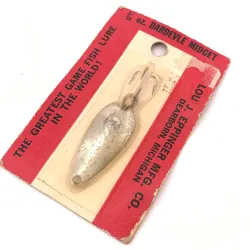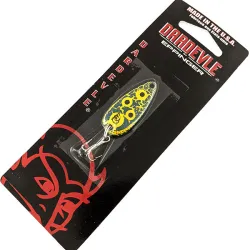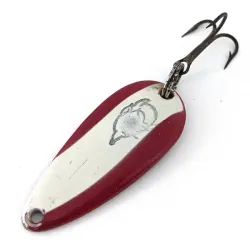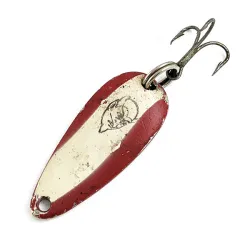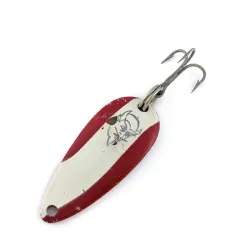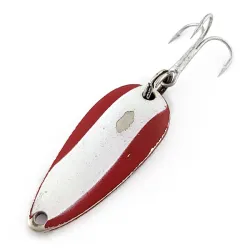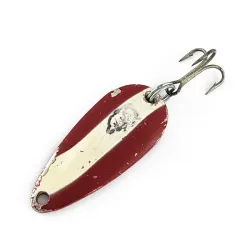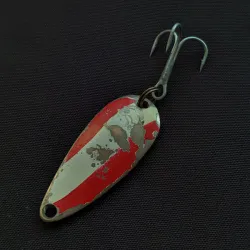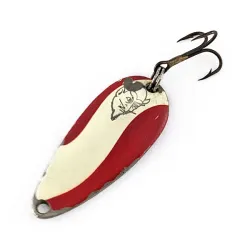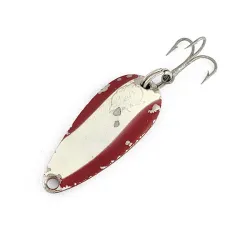Museum Archive: Vintage Eppinger Dardevle Midget 864 Hammered (1960s), 3/16oz hammered copper fishing spoon #21039
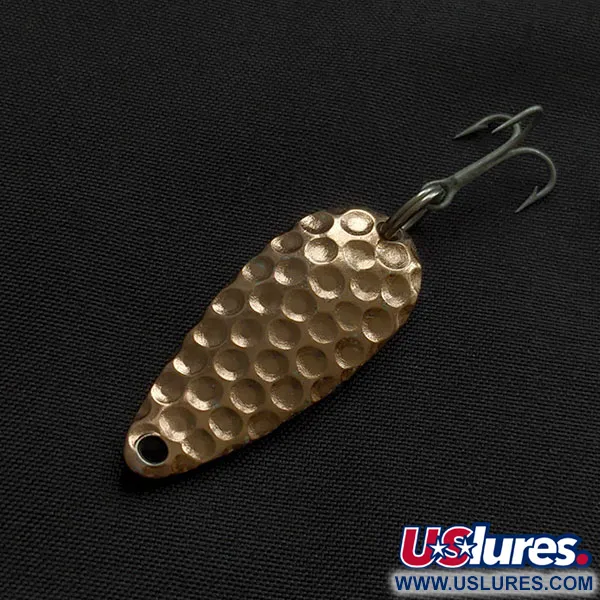
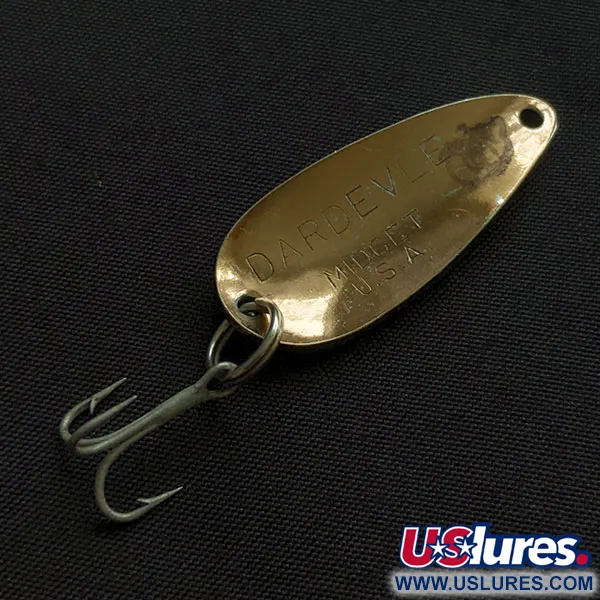

View technical specifications and condition
| Product Code (SKU) | 21039 |
| Brand | Eppinger |
| Condition: | Used — |
| Weight | 3/16 oz (6 g) |
| Length | 1 1/2" (3.5 cm) |
| Color | hammered copper |
| Country of origin | USA |
| Type | rarity |
A textured, hammered copper finish characterizes this mid-century spoon, offering a classic visual profile that remains popular among trout and panfish anglers. Stamped clearly on the reverse with the 'DARDEVLE MIDGET U.S.A.' hallmark, this 3/16oz (6g) specimen is a testament to the manufacturing standards of Eppinger’s 1960s production. The lure measures 1 1/2" (3.5cm) and maintains a condition rating of 5/5, showing excellent preservation of the copper surface and hardware. This model, identified by product code 21039, features the signature concave, oblong body shape that Lou Eppinger popularized after starting the company in Detroit in 1906. The original treble hook remains sharp and securely attached via the rear split ring. Collectors will appreciate the deep, even dimpling across the face of the spoon, which was designed to provide a specific light reflection during a steady retrieve. The line tie at the head is well-defined and clear of any significant wear.
This specific lure has found its new home. However, we have selected some excellent alternatives for you below.



